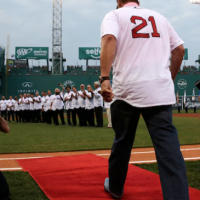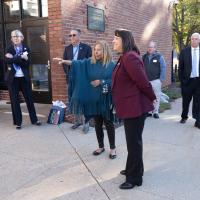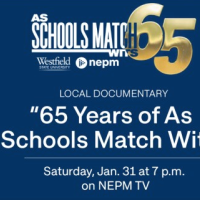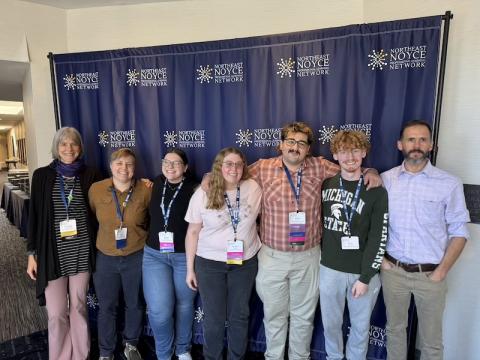
STEM-ACT Scholars Empowered at NOYCE Conference

Dr. Christine von Renesse, Jessica Peitzsch ’24, Maddie Boyer ’24, Aiden Robert ’24, Kyle Morandi ’24, and Dr. Arne Christensen.
Westfield State University is advancing equity and teacher retention in high-need Massachusetts school districts through the STEM-ACT grant, which provides $12,000 scholarships annually to junior and senior students in STEM fields who commit to teaching for two years in these districts for each year of scholarship support.
The grant program emphasizes training in social justice and culturally sustaining pedagogies, equipping future educators with the tools to thrive in diverse classrooms. Led by a team of faculty champions, including Dr. Christine von Renesse, Professor of Mathematics; Dr. Arne Christensen, Associate Professor of Biology; Dr. Jessica Stephens, Assistant Professor of Biology; Dr. Shannon Gleason, Assistant Professor of Education; and retired Dr. Volker Ecke, Associate Professor of Mathematics. The program aims to inspire and retain teachers dedicated to making a difference in high-need communities.
This fall, faculty and STEM-ACT Scholars attended the NOYCE Conference in Cambridge, MA, hosted by the Northeast NOYCE coalition. Named after Robert Noyce, co-inventor of the integrated circuit and co-founder of Intel, the conference connects educators and scholars from across the country, fostering collaboration and professional growth.
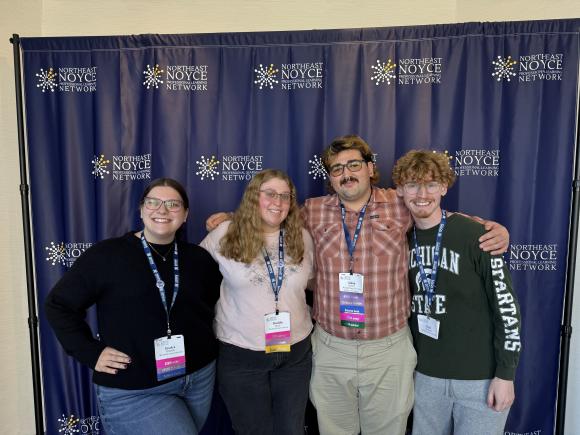
Several of Westfield State’s current STEM-ACT Scholars, Aiden Robert ’24, Jessica Peitzsch ’24, Kyle Morandi ’24, and Maddie Boyer ’24, immersed themselves in keynote presentations, workshops, and forums addressing topics such as climate change, teaching burnout, and bringing joy to the classroom.
Dr. Christensen emphasized the impact the conference had on the University’s STEM-ACT scholars, commenting, “I’ve heard from our Scholars that it was really valuable for them to be built into this community, where they’ve been learning strategies to help avoid burnout. One of the highlights was the teachers that are now in the field were giving suggestions to the audience on that. I think that was one of the important pieces of the conference. Also more broadly, the program is a community which has been going on for decades, and now there’s hundreds of these different projects scattered across the country.”
Dr. von Renesse reiterated this aspect of community that lasts beyond the STEM-ACT grant program, adding, “The panelists were all former NOYCE Scholars that are now in different positions in the field. Some are still classroom teachers, and some had moved up into administration. Our Scholars really appreciated listening to those perspectives and seeing what could be next for them.”
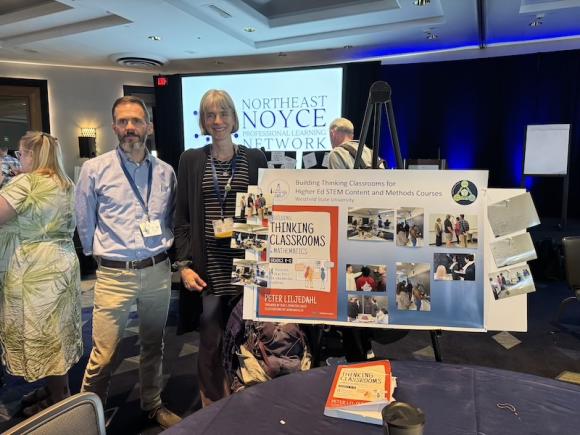
The benefits of the STEM-ACT program extend well beyond the scholarships, with Scholars being encouraged to remain connected and interact with conferences to cement their training and participate in professional learning communities, which offer one-on-one coaching, reading groups, and video study groups. This emphasis on support in addition to the professionalism of the conference was highly influential for the Scholars, some of whom had never attended conferences before.
"As a pre-service teacher and a student heading into practicum, this conference was an amazing opportunity to hear from veteran teachers with unique experiences and perspectives,” Jessica Peitzsch, STEM-ACT scholar, said. “I found so much value in the resources that they shared.”
Looking ahead, Westfield State will offer a spring internship program with stipends for students interested in exploring teaching by working in schools over spring break. “It’s a perfect opportunity for students who are curious about teaching but haven’t yet committed to the profession,” Dr. Von Renesse clarified. “We’re still figuring out how it's going to be organized, but interested students in can complete a form we already have ready.”
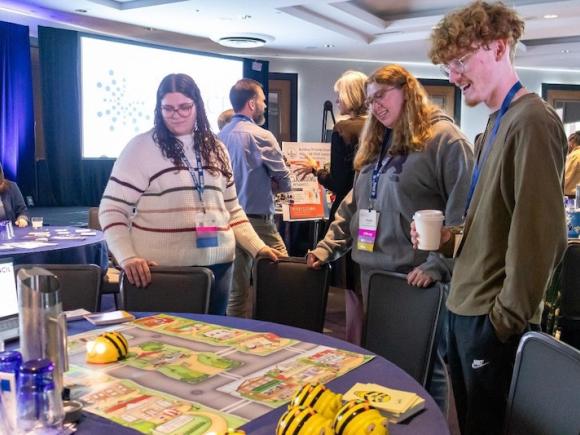
Applications for the next cohort of STEM-ACT Scholars will open in early 2025. Eligible students must major in a STEM field and demonstrate a passion for teaching in high-need districts. For more information, visit the STEM-ACT grant program page or contact the faculty team leading this transformative initiative.
